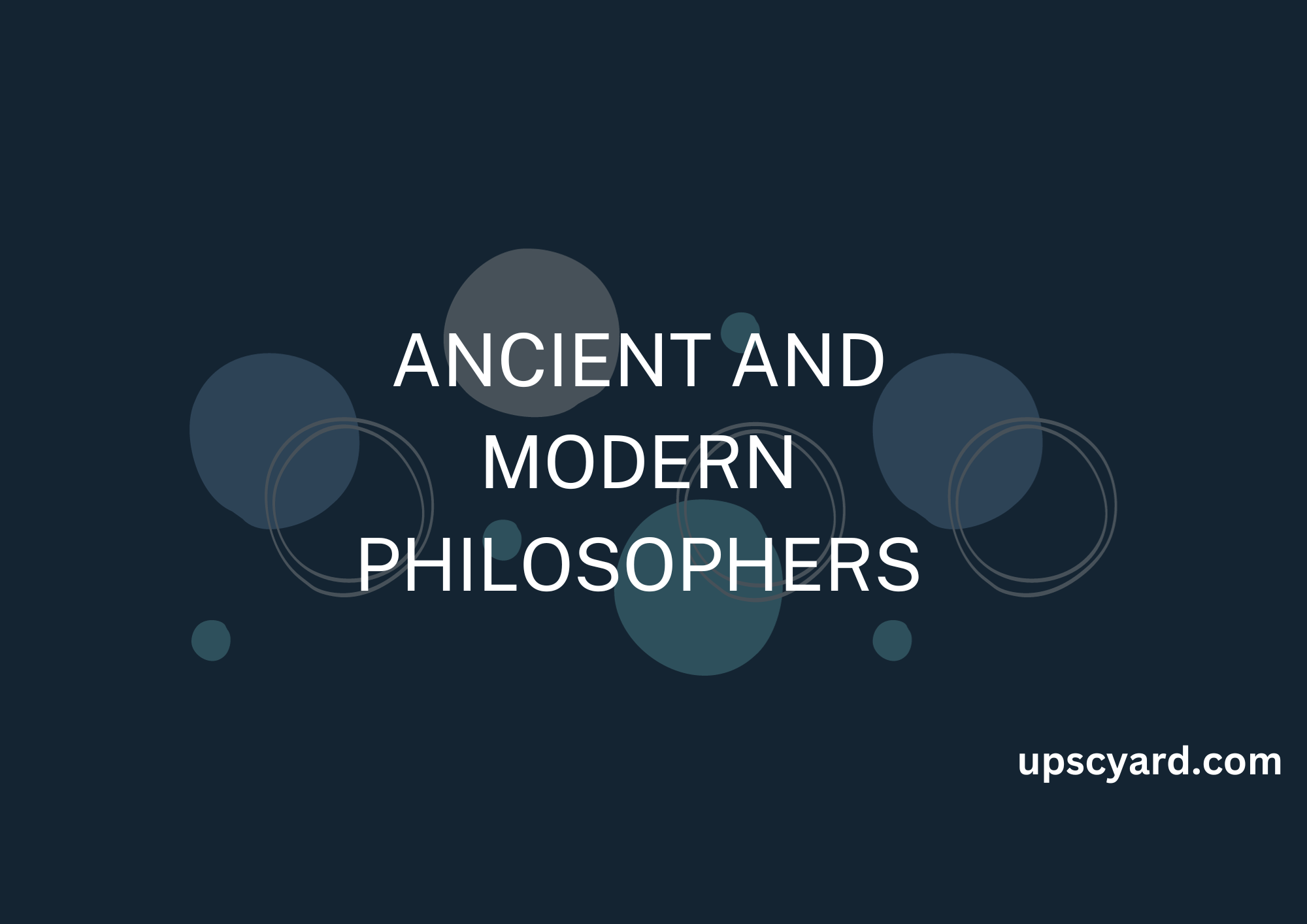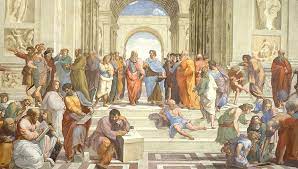
ANCIENT AND MODERN PHILOSOPHERS
Ancient Wisdom: Exploring Happiness and Virtue
The quest for wellness and happiness has captivated the minds of ancient thinkers, both from foreign lands and India, and their profound insights have revolved around the core of ethics. Ethics, in their worldview, emerged from a blend of religious texts, theoretical principles, and practical applications.
The Holistic Approach: Ancient philosophers embarked on a journey to intertwine three crucial elements: virtues, happiness, and the soul.
Seeking the Source of Happiness: The age-old question of what truly brings happiness continues to intrigue. Ancient philosophers believed it was a harmonious blend of soulful well-being, enriched with virtues, and physical health.
The Moral Compass: These sage philosophers tirelessly pursued the ideal of moral individuals, arguing that moral excellence sets one apart in their behavior.
Foreign Philosophers’ Perspectives:
1. Plato:

A towering intellect of his era, Plato emphasized the paramount importance of happiness as the ultimate goal. He contended that virtues paved the path to happiness. Virtuous conduct was the key to unlocking the gates of happiness.
Philosophy as a Way of Life: Plato envisioned philosophy as a way of life, an integral part of existence. He postulated that the soul played a pivotal role in shaping daily behavior and actions.
Three-Fold Soul: Plato dissected the soul into three distinct parts, each housing different desires: rational, appetitive, and spirited. Rational conduct was the cornerstone of virtuous living.
Education for Virtue: Plato’s Theory on Education underscored its role in nurturing virtuous individuals. Virtue, in turn, contributed to human happiness. Virtue’s manifestation varied according to the circumstances one faced.
A Virtuous Leadership: Plato championed leadership’s importance in instilling virtues. Leaders, according to him, had to be virtuous and impart these values through their training.
2. Aristotle:
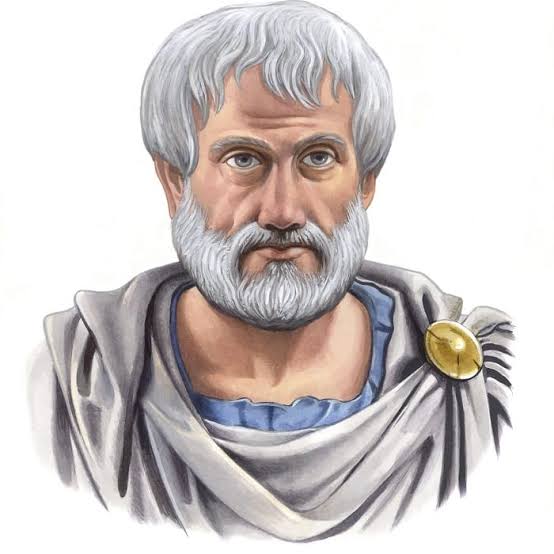
Aristotle, while sharing the pursuit of human happiness as life’s ultimate goal with Plato, held contrasting views on several aspects.
Naturalistic Approach: Aristotle’s approach to philosophy was deeply rooted in naturalistic traditions. He championed inquiry, examining answers by closely observing facts and evidence.
Character Determines Virtue: Aristotle posited that character was a state, and virtue emanated from one’s actions. Virtue was the essence of human emotions.
Virtue and Emotion: Virtuous individuals, according to Aristotle, exuded composure and forgiveness, while those lacking in virtue grappled with inner turmoil, exhibited vengefulness, and struggled to forgive.
The Two-Fold Soul: Aristotle divided the soul into rational and irrational facets, and virtues were categorized into three: Calculative (Intellectual), Appetitive (Moral), and Vegetative (Nutritional).
The Rational Soul: Aristotle asserted that rational behavior and a rational outlook defined human nature.
Hedonism and Human Nature: Aristotle’s theory of psychological hedonism suggested that human actions were steered by the pursuit of pleasure and avoidance of pain.
The wisdom of these ancient philosophers continues to illuminate the intricate interplay between virtues, happiness, and the human soul, offering profound insights into the timeless quest for well-being.
Jeremy Bentham: The Pursuit of Pleasure and Pain
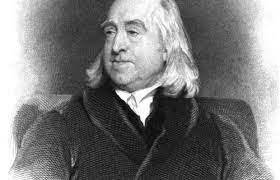
Jeremy Bentham, often regarded as the progenitor of Utilitarianism, encapsulated his philosophy in the statement, “Nature has placed mankind under the governance of two sovereign masters, pain and pleasure. It is for them alone to point out what we ought to do, as well as to determine what we shall do.” This profound insight resides in the introduction of his work ‘Introduction to the Principles of Morals and Legislation.’
Utilitarianism Unveiled: Utilitarianism, as conceptualized by Bentham, characterizes human behavior as driven by the avoidance of pain and the maximization of pleasure. Bentham posited that humans naturally gravitate toward actions that amplify pleasure and shun those causing pain.
Ethical Framework: In this vein, ethics can be defined as the art of guiding human actions to generate the utmost happiness for all involved. The moral agent’s compass points toward actions that maximize happiness and pleasure for the collective.
Critique and Challenges: However, Bentham’s ethical theory encounters a couple of challenges. First, quantifying happiness in precise terms proves elusive. Second, pleasure and pain are subjective experiences. As Pushkin, a critic of Bentham, astutely noted, “It is better to be an intellectual who is dissatisfied than a pig who is satisfied.” Nonetheless, Bentham’s theory of psychological hedonism, which posits that motives of pain and pleasure drive all human actions, remains influential.
Immanuel Kant: Duty over Consequences
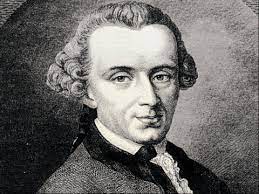
Immanuel Kant adhered to the deontological school of moral theory, where actions are not contingent on their outcomes but on whether they fulfill one’s duty.
Deontological Ethics: In stark contrast to Utilitarianism, Kant’s perspective diverged. He contended that certain actions, such as theft or murder, remained prohibited, regardless of their potential to bring happiness and benefits.
The Kantian Inquiry: Kant proposed two vital questions for individuals to ponder before taking any action:
- Can I rationally endorse everyone acting as I intend to act? If not, the action must be avoided.
- Do my actions respect the inherent worth of human beings, rather than merely exploiting them for personal gain? Any negative response precludes proceeding with the action.
Rawls’ Justice Theory: A Fair Social Contract
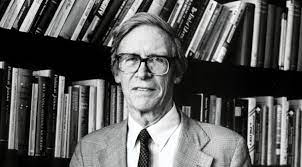
John Rawls, a prominent American thinker, introduced his theory of justice through the social contract framework.
The Social Contract’s Premise: Rawls’ theory echoed the social contract theory’s notion of a ‘state of nature,’ where individuals wielded absolute liberty to act as they pleased. Inevitably, chaos ensued, prompting individuals to collectively form a state. However, Rawls challenged this notion.
Justice as Fairness: Rawls posited that justice equated to fairness. His theory comprised three principles and five procedural steps for attainment:
- The Original Position: Similar to the ‘State of Nature,’ individuals possessed absolute liberty amid chaos.
- Veil of Ignorance: Decision-makers cast aside awareness of their personal attributes and backgrounds.
- Unanimous Acceptance: With the veil lifted, members agreed on a just, fair standard, prioritizing minimal rights, liberties, and the welfare of vulnerable groups.
Procedural Path to Justice: The five procedural steps encompassed entering the contract, unanimous agreement, defining basic conditions, maximizing welfare for disadvantaged groups, and ensuring contract stability.
Indian Philosophical Wisdom
1. Buddhism: Embracing the Virtues of Karma and Enlightenment

Buddhism, an ancient philosophy and way of life, upholds the inherent goodness of human actions, interwoven with the profound cycle of existence: birth, life, death, and rebirth. Central to Buddhist philosophy is the profound concept of Karma, serving as a guiding principle.
The Enlightenment at Gaya: Following his enlightenment beneath the Bodhi tree in Gaya, Lord Buddha articulated foundational principles that shape Buddhist thought.
The Four Noble Truths: Among these principles, the Four Noble Truths stand as guiding beacons for moral contemplation and action. These truths unfold as follows:
- The Truth of Dukkha: Dukkha, often translated as suffering or discontentment, is acknowledged as an inherent aspect of human existence. It signifies the universal presence of sadness and dissatisfaction in life.
- The Truth of the Origin of Dukkha: This truth elucidates the root causes of suffering: the relentless pursuit of pleasure and attachment to it, coupled with aversion to displeasure. Clinging to what is pleasurable and avoiding the unpleasant perpetuates suffering.
- The Truth of the Ending of Dukkha: Here, the path to liberation from suffering is illuminated. By renouncing the cravings and attachments that fuel the cycle of rebirth and dissatisfaction, one can attain a state where suffering ceases to arise.
- The Truth of the Path of Liberation from Dukkha: The Noble Eightfold Path emerges as the transformative journey toward liberation. This path, grounded in virtuous conduct, disciplined living, mindfulness, and meditation, offers a means to transcend craving, attachment, rebirth, and discontentment.
A Philosophy of Goodness and Compassion: Buddhism resonates with the profound values of goodness and compassion. It asserts that ethical conduct should emanate from within, free from external influence. Individuals, bound within the cycle of life and death, persist until they attain enlightenment through their intrinsic journey.
Buddhism, with its emphasis on inner transformation and the alleviation of suffering, remains a timeless and deeply resonant philosophy.
2. Swami Vivekananda: Inspiring Goodness, Service, and Positive Character
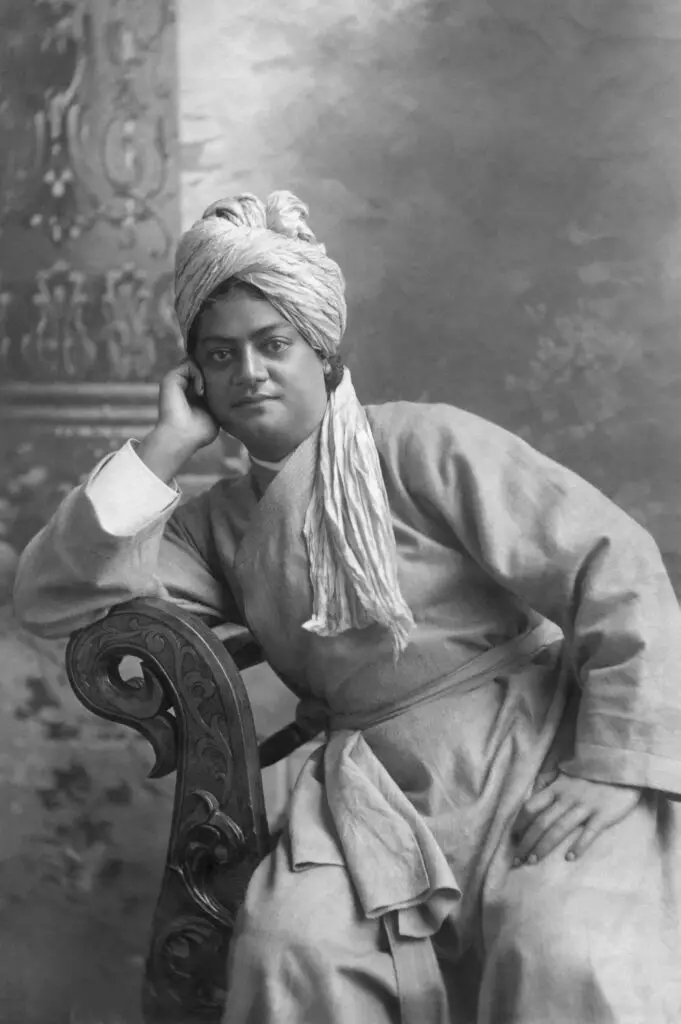
Swami Vivekananda, a proponent of Vedanta philosophy, championed the cause of societal well-being and emphasized the inherent goodness within every individual. He firmly believed that divinity resides within the hearts of all human beings and that nurturing virtuous qualities was essential for the betterment of society.
Service to Society is Service to Mankind: Swami Vivekananda ardently advocated that serving society equates to serving humanity as a whole. His clarion call to the youth of India implored them to shun negative thoughts and cultivate positive character traits, ultimately awakening the nation from its slumber.
Human Development for National Progress: Swami Vivekananda underscored that the progress of a nation hinges upon the development of its individuals. He stressed the critical importance of quality education for all, asserting that such education should encompass essential lessons in morals and ethics.
Moral Values and Their Essence: Vivekananda regarded moral values as the bedrock of a harmonious society. These values encompass:
- Moral Standards of Behavior: Setting benchmarks for virtuous conduct.
- Moral Responsibility: Acknowledging the duty of individuals towards society.
- Moral Identity: Fostering a sense of ethical selfhood.
Critique of Mechanization and Materialism: Swami Vivekananda expressed deep concern about the mechanization of society and the adverse impact of materialism. He decried the corrosive effect of unchecked pursuit of wealth, which often led individuals to disregard the welfare of society and the environment.
Respect for the Elderly and Social Harmony: He pointed out the distressing disrespect shown towards the elderly in society, emphasizing the need for a cultural shift towards greater reverence for older generations.
The Imperative of Sound Education: Vivekananda believed that a robust educational system was vital to rectify these societal disorders. He proclaimed that to foster the development of individuals and elevate India to greatness, people must embrace:
- Conviction of Goodness: Trust in the inherent goodness of humanity.
- Absence of Jealousy and Suspicion: Overcoming negative emotions that hinder progress.
- Helping Others in the Pursuit of Goodness: Extending a helping hand to fellow human beings on their journey towards virtuous living.
In conclusion, Swami Vivekananda championed the profound idea that service to fellow humans equates to service to the divine. He urged everyone to recognize the divine essence within each person, transcending religious boundaries. His teachings continue to inspire individuals worldwide to cultivate goodness, promote positive character, and work towards the betterment of society and humanity as a whole.
3. Mahatma Gandhi: The Champion of Truth, Non-violence, and Sustainable Living
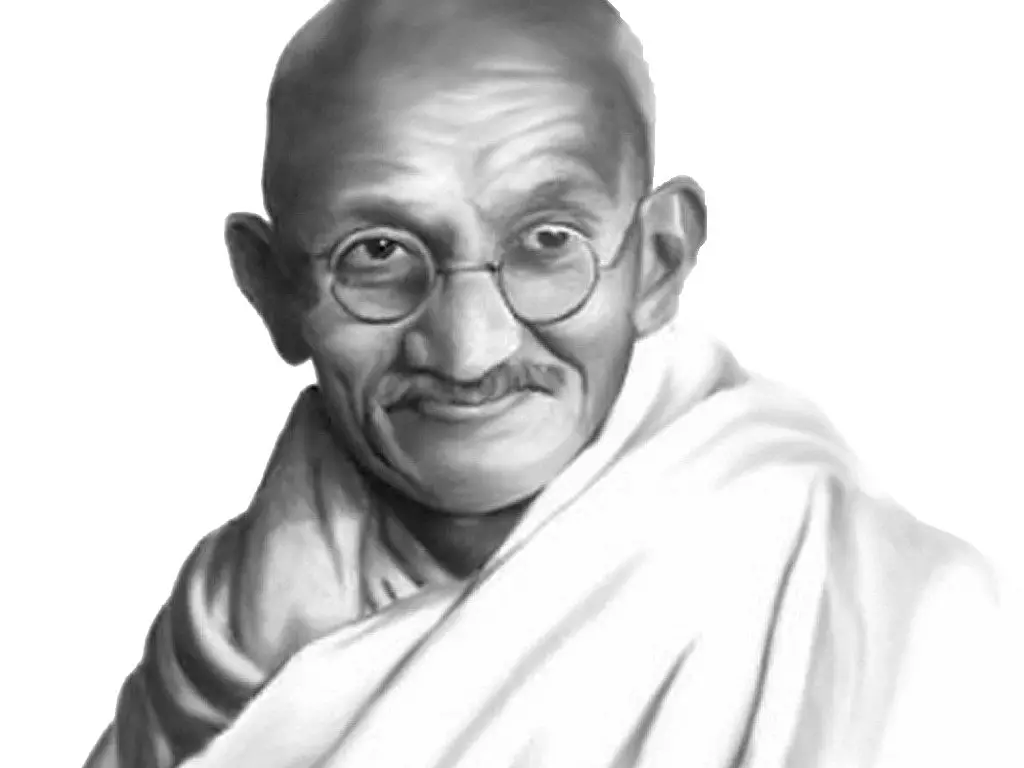
Mahatma Gandhi played a pivotal role in India’s nationalist movement, calling upon citizens to align their aspirations with the well-being of fellow human beings and the environment. His philosophy centered around principles that continue to resonate with us today.
Service to Society and Environmental Respect: Gandhi believed that every individual should dedicate their lives to serving society, particularly its marginalized segments, while simultaneously showing reverence for the environment.
The Power of Truth and Non-Violence: Gandhi fervently advocated for truth and non-violence as timeless values. He famously declared, “I have nothing new to teach the world. Truth and non-violence are as old as the hills.” These principles formed the bedrock of his approach to social and political change.
Embrace of Indian Philosophy: Rejecting Western ideologies, Gandhi encouraged Indians to delve into their rich cultural heritage, fostering a sense of self-assurance. He celebrated the inherent goodness within Indian philosophy.
Holistic Approach to Goodness: Gandhi’s vision extended beyond social harmony; he also championed economic sustainability, advocating for practices that we now recognize as sustainable development. He urged his followers to adopt the Khadi movement and support rural and cottage industries. His philosophy emphasized sufficiency over greed, asserting that there is plenty to meet human needs but not human greed.
Sarvodaya: Service to All: Gandhi’s “Sarvodaya” concept underscored service to all, with a focus on the dignity of labor and service to humanity. He believed that every person deserved equal opportunities and respect.
Trusteeship and Common Good: Gandhi introduced the idea of trusteeship, where individuals managed their resources, wealth, and talents for the collective welfare of society. He emphasized that everything in the world should contribute to the common good.
Warning Against Detrimental Practices: In his prophetic warning, Gandhi asserted that practices such as “Wealth without Work,” “Pleasure without Conscience,” “Knowledge without Character,” “Commerce without Morality,” “Science without Humanity,” “Religion without Sacrifice,” and “Politics without Principles” would ultimately harm the world.
In light of the COVID-19 pandemic, Gandhi’s wisdom becomes even more apparent. Rampant environmental exploitation has led to various pandemics, underscoring the need for sustainable practices. Politics devoid of principles has resulted in the plight of vulnerable sections of society, while commerce lacking morality has led to exorbitant healthcare costs and compromised services. Additionally, the issue of vaccine nationalism exemplifies the peril of science without humanity.
In essence, Mahatma Gandhi’s enduring philosophy continues to inspire us to uphold truth, non-violence, sustainability, and social responsibility, emphasizing the interdependence of human welfare, ethical conduct, and environmental stewardship.

